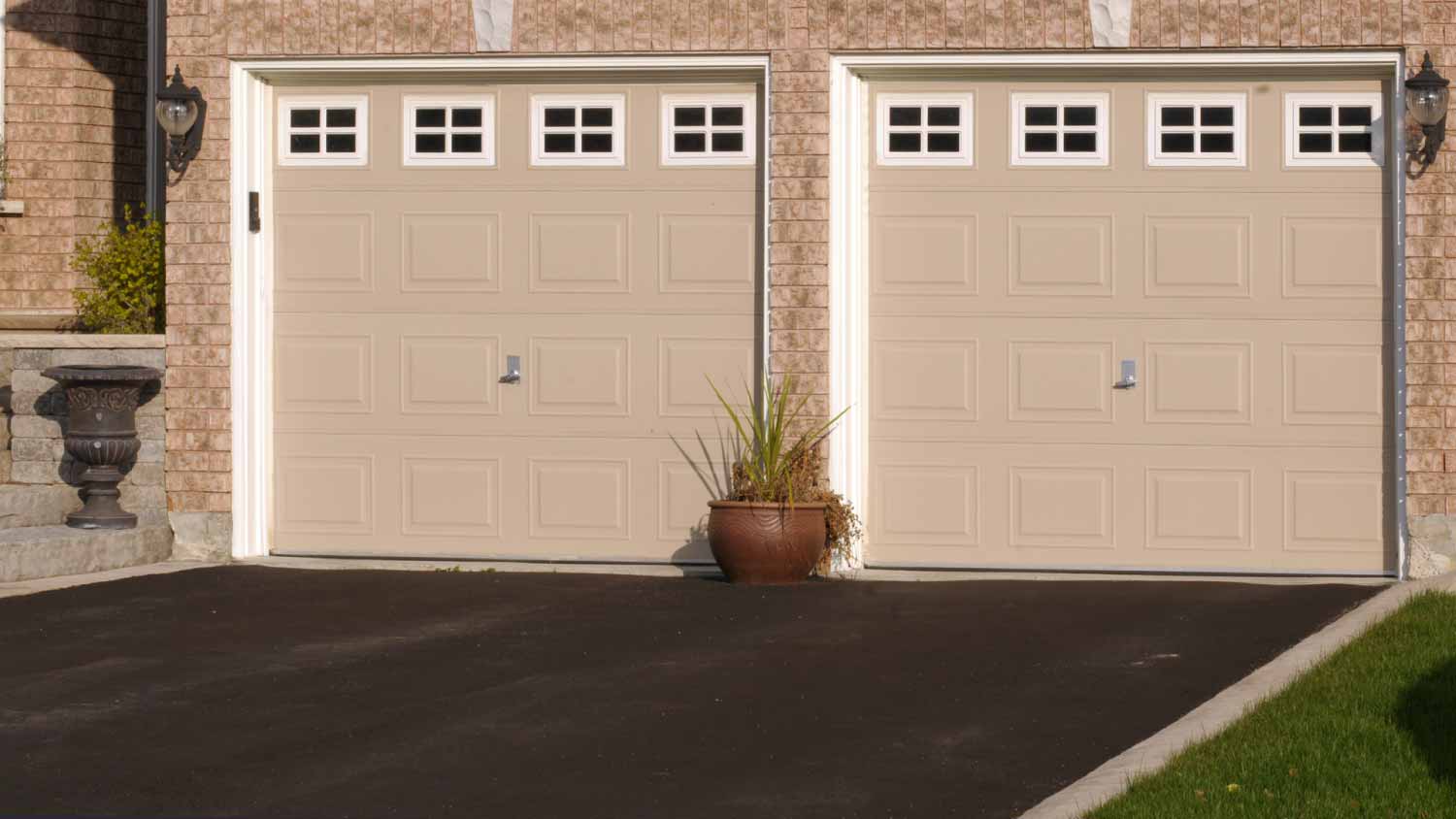Pros and Cons of Asphalt Milling for Your Driveway
Asphalt milling could be the low-cost, eco-friendly option you’re looking for


Asphalt millings are an environmentally-friendly paving option, made from recycled asphalt bits
This material is very cost-effective, and less expensive than traditional asphalt or concrete
The recycled asphalt is mixed with other materials for added durability
Asphalt milling could contain contaminants, so it’s best to test your material before installation
If you want the durability of asphalt at a cheaper cost with the added bonus of sustainability, consider asphalt millings for your driveway project. This material is made from excess asphalt that has been planed off during maintenance work—the millings are fully recycled and get a boost from binding materials for extra durability. Read on to learn about the pros and cons of asphalt milling and decide if it’s the best option for your driveway.
What Is Asphalt Milling?
Asphalt milling is an eco-friendly alternative to traditional asphalt paving. Milling is the process of removing and collecting the top layer of existing asphalt, using a cold planer or milling machine. This levels the pavement’s surface, and removes deformities before a new layer of asphalt is added. The collected asphalt is then crushed into smaller pieces and mixed with a binder for extra durability—the mixture can then be used in place of new asphalt. This recycling process minimizes waste and promotes sustainability.
| Pros | Cons |
|---|---|
| Environmentally-friendly | Variable quality, depending on source material |
| Lower cost | Could contain contaminants |
| Durable | Rougher surface |
| Quick installation | Limited availability |
Pros of Asphalt Millings

Let’s look closer at all the benefits of using asphalt milling for your driveway.
1. Cost-effective
Using asphalt millings for your driveway is a wallet-friendly option—this recycled material is less expensive than traditional asphalt ($7 to $13 per square foot) or concrete ($8 to $18 per square foot), ranging between $2 and $5 per square foot.
2. Eco-friendly
Most homeowners choose asphalt milling because they want a recycled, environmentally friendly option for their driveway. Because asphalt millings pull from excess materials from existing asphalt, they are an excellent choice if you are looking for a sustainable option for your driveway.
3. Extremely Durable
When asphalt millings get mixed with crushed aggregate and binding additives, they become extremely durable and able to withstand high amounts of traffic and pressure. Make sure to have your asphalt millings installed by a reputable local asphalt company to ensure it is done properly—proper installation will reduce cracks and rutting, prolonging the lifespan of your driveway.
4. Quick Installation
Asphalt milling can be installed much faster than traditional asphalt, taking only one or two days to completely set and harden. Given its composure, made from smaller aggregates, it can be quickly compacted with a roller. Traditional asphalt takes at least three days to set.
Cons of Asphalt Millings

Nothing is perfect. While asphalt millings are cost-effective and environmentally friendly, they do have some drawbacks.
1. Quality Can Be Inconsistent
The quality of asphalt milling can depend on the source. Because it is sourced from different places, it's possible that rocks, vegetation, or even discarded contaminants can work their way into the recycled material. In addition, inadequate compaction can lead to some of the smaller aggregates washing away in extreme weather and heavy traffic. To prevent these issues, look for reputable sellers for your millings and hire an experienced asphalt company near you to perform the installation.
2. Potential for Contaminants
Asphalt milling production does involve a screening process to reduce the number of contaminants—removing oil, lead, and other hazardous materials—but these materials could still find their way into the millings. Perform a test of your materials to check for anything harmful before installing asphalt millings on your driveway.
3. Rougher Surface
Asphalt millings contain fragments of old pavement and a mix of aggregates, which have variations in size—this can give your asphalt milling driveway a rougher surface than if you used traditional asphalt. This could become problematic if your driveway experiences a lot of foot traffic.
4. Limited Availability
Since asphalt millings are produced using old asphalt, it’s not constantly being manufactured in the same way as other materials. You might find it difficult to secure the amount you need for your driveway project, depending on where you live—urban areas, with more roads, will have more material available compared to rural locations.
Alternatives to Asphalt Millings
Most people choosing asphalt millings are looking for sustainable, eco-friendly driveway options. Other environmentally sound driveway materials include:
Grass Driveway Pavers: Installing pavers with gaps so that grass can grow through is an excellent way to promote driveway drainage and give your landscaping an added boost of greenery.
Gravel: Gravel is another inexpensive option, though it needs to be topped off regularly as it can become uneven over time.
Recycled Rubber: Recycled rubber is inexpensive and required little maintenance, but it can become tacky in hotter climates—it’s a better driveway material for cold weather.
Are Asphalt Millings Right for You?
If budget and sustainability are your priorities, then asphalt milling could be right for you. Keep in mind that you’ll need to sealcoat your asphalt milling driveway six months after installation, then every 3 to 5 years; this will prolong your driveway’s lifespan. If you can handle this maintenance, and don’t mind doing the contaminant testing, asphalt millings could be an excellent, eco-friendly choice for your home’s driveway.
Frequently Asked Questions
With proper maintenance, asphalt milling driveways can last 30 years or more. Over time, you’ll need to regularly sealcoat your driveway. You should also have your driveway inspected every few years and make any repairs as soon as they are necessary; this will prolong the lifespan of your driveway.
It’s best to weigh the pros and cons of each material and decide on your priorities for your driveway. Gravel won’t be an appropriate choice if your driveway experiences heavy traffic. You’ll find that you need to level and top it off regularly, which could make the material a much more expensive option.














